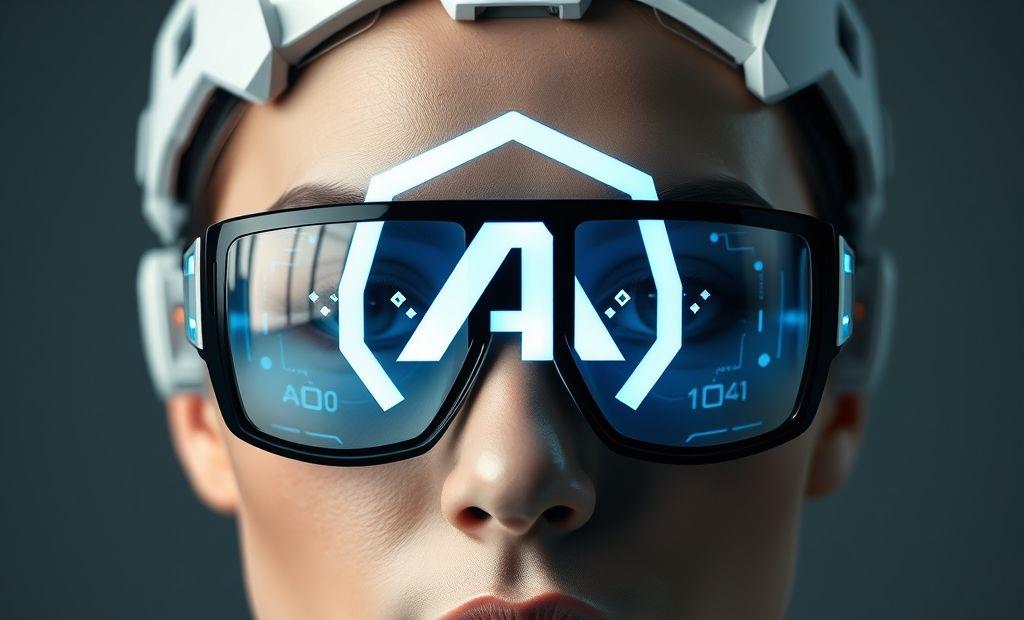AI Glasses: Future Advantage or Disadvantage?

Meta’s Vision: AI Glasses and the Future Meta CEO Mark Zuckerberg believes that augmented reality (AR) glasses integrated with artificial intelligence (AI) will offer a...
⏱️ Estimated reading time: 2 min
Latest News
Meta’s Vision: AI Glasses and the Future
Meta CEO Mark Zuckerberg believes that augmented reality (AR) glasses integrated with artificial intelligence (AI) will offer a significant advantage in the future. He suggests individuals without access to these technologies may face disadvantages in various aspects of life. This has sparked discussions about the potential societal impact of AI wearables.
The Promise of AI-Powered Glasses
Zuckerberg envisions a future where AI glasses seamlessly integrate into daily life, enhancing productivity, communication, and access to information. The technology promises features like real-time translation, contextual information overlays, and AI-powered assistance for various tasks. For instance, users could leverage AI-powered translation during international travel, making communication effortless.
Potential Disadvantages for the Un-Glassed
According to Meta’s perspective, those who don’t adopt AI glasses may find themselves at a disadvantage. Imagine a world where critical information is readily available to glass wearers but not easily accessible to others. This could impact areas like:
- Job opportunities: Some jobs may require or heavily favor candidates with AI-enhanced capabilities.
- Social interactions: Real-time translation and contextual information could create communication barriers.
- Access to information: Quick access to data and AI-powered insights may give glass wearers an edge.
Ethical Considerations and Accessibility
The widespread adoption of AI glasses raises ethical questions. Ensuring equal access to this technology is paramount to avoid exacerbating existing inequalities. Meta and other companies developing similar technologies need to address concerns regarding data privacy, algorithmic bias, and the potential for social stratification. Consider the need for ethical AI development to prevent biases in these technologies.
The Future of Wearable AI
The future described involves more than just having access to technology; it includes integrating technology so deeply that not having it leads to a significant disadvantage. The race to create and market these glasses is accelerating, and society must prepare for the potential consequences of widespread AI integration. Exploring avenues for AI ethics in wearables is crucial.
Related Posts
Bluesky Enhances Moderation for Transparency, Better Tracking
Bluesky Updates Moderation Policies for Enhanced Transparency Bluesky, the decentralized social network aiming to compete...
December 11, 2025

Google Maps: Gemini Tips, EV Charger Predictions & More!
Google Maps Gets Smarter: Gemini Tips & EV Updates Google Maps is enhancing user experience...
December 9, 2025

Adobe Acquires Semrush in $1.9B SEO Power Play
Adobe to Acquire Semrush for $1.9 Billion Adobe announced its agreement to acquire the search...
December 1, 2025
3 Comments
-
ISO 27001
This challenges me to think differently about this topic. I’ve been approaching it from old perspective, but your insights push me toward new perspectives. Growth moments like this are valuable.
-
Best resort in Camotes
The topics covered here are always so interesting and unique Thank you for keeping me informed and entertained!











This challenges me to think differently about this topic. I’ve been approaching it from old perspective, but your insights push me toward new perspectives. Growth moments like this are valuable.
The topics covered here are always so interesting and unique Thank you for keeping me informed and entertained!